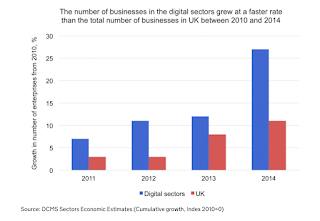What does the technological future have in store for property?
What is behind our innate desire to know what the future brings? If we take into context the holy trinity of era comparisons – past, present and future, they each bring their own discussions. Is it perhaps knowing that the future has the capacity to potentially manifest an unpredictable number of variables that has made it such a compelling preoccupation through the ages? The past is unchangeable, the present is limited but the future has the potential to be more interesting than it’s predecessors.
Whether that is the dystopian vision portrayed in Ridley Scott’s Blade Runner, or the floating houses and flying cars of the Jetsons it certainly captures the imagination of the masses.
In the property sector as technology becomes integrated into the system, all processes within the property industry will take place at a much faster pace. The complete replacement of paper based processes with digital mediums will see instantaneous real-time interactions happening. Using virtual reality to view 3d laser scanned properties will enable virtual viewings without having to physically visit the property. A house buyers personal profile will allow the transfer of house bill details to a new property with the simple push of a button.
There will be two distinct tools that will be used to create this future reality:
The Internet
The super information highway has become an intersecting dimension into how data is shared and exchanged. The possibilities are endless such as tenancy deposit compensation claim solicitors, current estimations on how much data is on the internet are in the region of 1.2 million terabytes and growing.
A property using future smart technology via the internet could contain systems that revolutionise building management. Structural or maintenance issues would be detected early on and fixed before they can cause damage. Higher energy efficiencies would reduce costs with the use of real time lighting and temperature controls.
Artificial intelligence
Technology has expanded exponentially since the introduction of the computer chip, experts have predicted Artificial Intelligence (AI) will outperform humans in every task in 45 years.
This is a term that encompasses all new techniques that do not require human input to process data. The potential is infinite since it is not bound by the finite parameters of human endurance and efficiency, it works relentlessly. Huge amounts information can be assimilated at a rate that has never been witnessed in humankind’s history.
A property using artificial intelligence could mean concierge or building security services, which could use smart detection systems and be an amazing facility for experiences unique to the owner.
Readers will be interested to hear that there are a growing number of companies that employ AI: Google, Facebook, IBM, Apple, Skype, Microsoft.
Combining these two tools would revolutionise the way people live, by collecting data on a properties inhabitants and then reacting to them to give them a personalised experience.
Whether you decide to embrace technology or not will not hinder it’s future because it is the future. The UK government’s policy papers on the digital sector published in March 2017 show that this transformation is very much a reality, as shown in the graphs below:
“The UK is already a world centre for finance, and home to a great deal of investment finance. Overall, investment in UK technology businesses is buoyant. Analysis by the British Business Bank using data from Beauhurst shows a record £1.57 billion of equity finance was invested in the digital sectors in 2015, more than four times the level of investment in 2011. Investment in the sector has remained high over the first three quarters of 2016.” www.gov.uk
Technology is now replacing the older archaic mediums of the physical world, the technological shift is happening, and th


Comments
Post a Comment